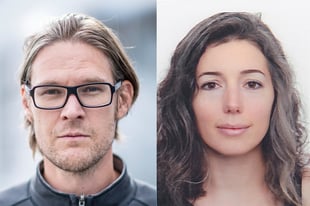

ANIMAFEST PRO | ANIMAFEST SCANNER IIII - Symposium for Contemporary Animation Studies | PANEL 1: THE CHANGING ROLES OF FESTIVALS
Practice First, Theory Second. Reflecting on Academic Symposia as a Trend at Animation Festivals - Jürgen Hagler - Upper Austria University of Applied Sciences, Franziska Bruckner - ASIFA-Austria, AG Animation
6/06 TUE 12:10 - 12:40 Chilloutka, Ilica 15/1
At first there was practice, then festivals, and theory followed. Compared to the animation production, which is older than the medium film itself, festivals and theory in this area started with a delay. While animation programs where shown in film festivals like Cannes since the mid-1940s, the first animation festival in Annecy, France was founded in 1960, followed by several short-lived events in Romania, Italy and Tokyo and finally in 1972 by the second oldest festival up to date, Animafest Zagreb. Animation theory evolved in the late 1980s in the Anglo-American area with associations like the Society for Animation Studies, following its ‘big sister’ film studies. Expanding ever since as a research area, European animation studies in e.g. France, German-speaking countries, Poland or Croatia have been catching up in recent years by organizing theoretical conferences and publications.
A vivid synergy between practice, festivals and theory has always been a key factor for establishing a platform for the art form and culture of animation. However, in the past few years a trend could be observed towards a more intense interaction between animation festivals and theory. Animation festivals are hosting theoretical and scientific symposia or conferences, which are open for artist positions and insights into the industry.
At the beginning of the lecture a short reflection of the concept of Animafest Scanner itself is followed by an introduction of the Symposium Expanded Animation at the media festival Ars Electronica Linz. The talk will subsequently focus onthe multi-layered academic symposia at the Festival of Animated Film ITFS and the International Conference on Animation, Effects, VR, Games and Transmediain Stuttgart. These case studies will reveal the blurring boundaries between art, science, theory and industry, as well as the specificities of the interplay between artists, practitioners, scholars, curators and festival visitors in different formats.
Dr. Franziska Bruckner (Salzburg, 1981) studied theatre, film and media studies at the University of Vienna, as well as painting and animation at the University of Applied Arts Vienna. From 2009 to 2013 she was praedoc assistant at the department of theatre, film and media studies in Vienna and on the editorial board of the e-journal rezens.tfm. Since 2013 she works as lecturer of animation theory and practice at the University of Viennaand University of Applied Sciences Upper Austria. She is a co-coordinator of the AG Animation of the German-speaking Society ofMedia Studies and board member of ASIFA Austria. Her main research and publications focus on animation, experimental film, as well asrelations between fine arts and film.
Jürgen Hagler studied art education, experimental visual design and cultural studies at the University for Art and Design in Linz, Austria.He currently works as a professor of computer animation and animation studies in the Digital Media Department at the Hagenberg Campus of the University of Applied Sciences Upper Austria. Since 2014 he is the head of the research group Playful Interactive Environments with a focus on the investigation of new and natural playful forms of interaction and the use of playful mechanisms to encourage specific behavioural patterns.Since 2009 he is the curator of the Ars Electronica Animation Festival and initiator and organizer of the symposium Expanded Animation.


